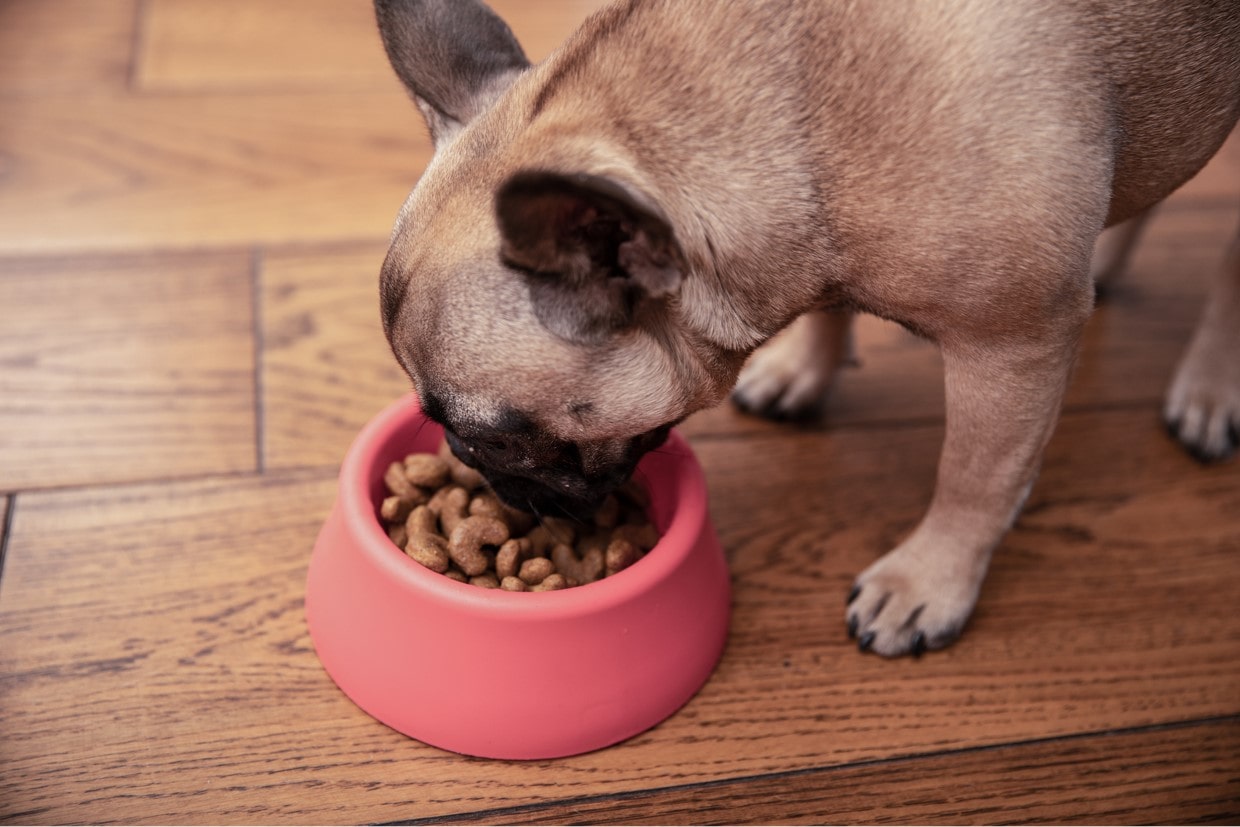“Your puppy’s nutritional requirements change as they reach the 6 to 12-month mark, necessitating careful consideration to ensure their continuing growth and wellbeing.”
The selection of food, precise nutrient amounts (including protein, carbs, and fats in percentages), portion sizes measured in grams, ideal feeding frequencies, and quantitative guidance for nutritional supplements are all covered in this article to help you give your older puppy the best care possible.
Choice of Food: Commercial or Homemade?
- Commercial Dog Food
- Commercial dog food is meticulously formulated to meet the precise nutritional needs of dogs during different life stages.
- It comes in various forms, including kibble, canned, and semi-moist, catering to your pup’s preferences.
- Select high-quality brands that prioritize real meat as the primary ingredient, avoiding excessive fillers like corn or soy.
- Ensure your choice aligns with your pup’s age, opting for food designed for puppies or all life stages to fulfill their unique nutritional demands.
- Homemade Meals
- Homemade meals offer full control over your puppy’s diet, allowing you to tailor it to their specific needs.
- Incorporate top-notch protein sources such as lean meats (chicken, turkey, beef), along with a rich array of fruits and vegetables to provide essential vitamins and minerals.
- Collaborate with a veterinarian or canine nutritionist to guarantee the nutritional balance of homemade meals, as achieving this can be complex without expert guidance.
Quantifying Nutrients for Your Puppy
To ensure optimal growth and development, precise percentages of key nutrients are essential:
- Protein: Puppies typically require around 22-32% of their daily calories to come from protein sources like lean meats (e.g., chicken or turkey).
- Carbohydrates: Approximately 40-50% of daily calorie intake should consist of carbohydrates, such as whole grains (e.g., brown rice or quinoa) and vegetables (e.g., sweet potatoes or carrots).
- Fats: Fats should make up roughly 8-20% of daily calorie intake, ideally sourced from healthy options like fish oil for omega-3 fatty acids and the natural fats found in meat.
Precise Quantity in Grams and Frequency of Feeding
Tailoring the amount and timing of meals is vital for your older puppy’s health:
- Portion Size: A typical portion size for an older puppy usually ranges from 200 to 300 grams per meal, depending on their breed, size, and activity level. Commercial dog food often provides feeding guidelines, while homemade meals should be portioned per your veterinarian’s recommendations in grams.
- Feeding Frequency: Older puppies generally thrive on 2 to 3 meals daily. Smaller, more frequent meals help maintain steady energy levels and reduce the risk of digestive discomfort. Establish a consistent feeding schedule that aligns with your puppy’s routine to facilitate regular mealtimes.
- Monitoring Body Condition: Regularly assess your puppy’s body condition by observing their weight and appearance. A healthy puppy should exhibit a visible waistline from above and have ribs that can be felt without an excess of fat. Be prepared to adjust portion sizes or feeding frequency if you notice your puppy becoming either underweight or overweight.
Nutritional Supplements with Precision
Although commercial dog food aims to be nutritionally complete, some puppies may require supplements. For accuracy, here are specific quantities for potential supplements:
- Calcium and Phosphorus: Maintaining the correct balance is crucial for healthy bone development. Consult your vet to determine if supplementation is necessary.
- Omega-3 Fatty Acids: For skin, coat health, and cognitive development, consider supplementing with 1000mg of fish oil per day for small breeds and up to 3000mg per day for larger breeds.
- Vitamins and Minerals: Depending on your puppy’s specific needs, your vet may recommend additional vitamins or minerals to address deficiencies or support growth. Dosages should always be prescribed by a professional.
- Probiotics: It promotes a healthy gut. The typical dosage ranges from 1-2 billion CFUs per day, adjusted according to your puppy’s size.
Final Verdict
With exact nutrient percentages, portion sizes calculated in grams, and customized feeding frequencies, older puppies (6 to 12 months) must be fed with extreme care. The most important thing is to give a nutritionally balanced diet catered to your puppy’s particular needs, whether you want to feed them commercial dog food or homemade meals.



